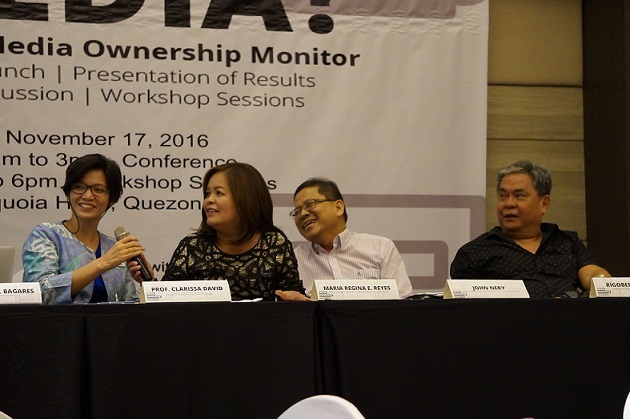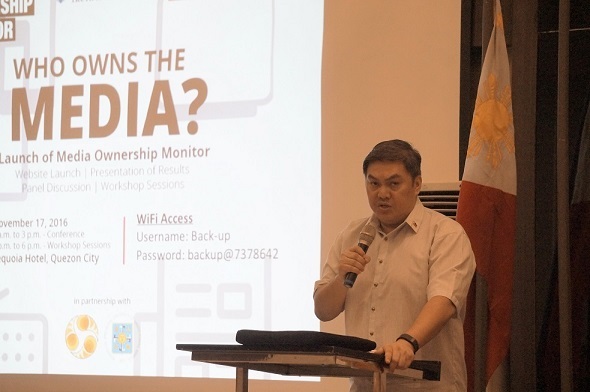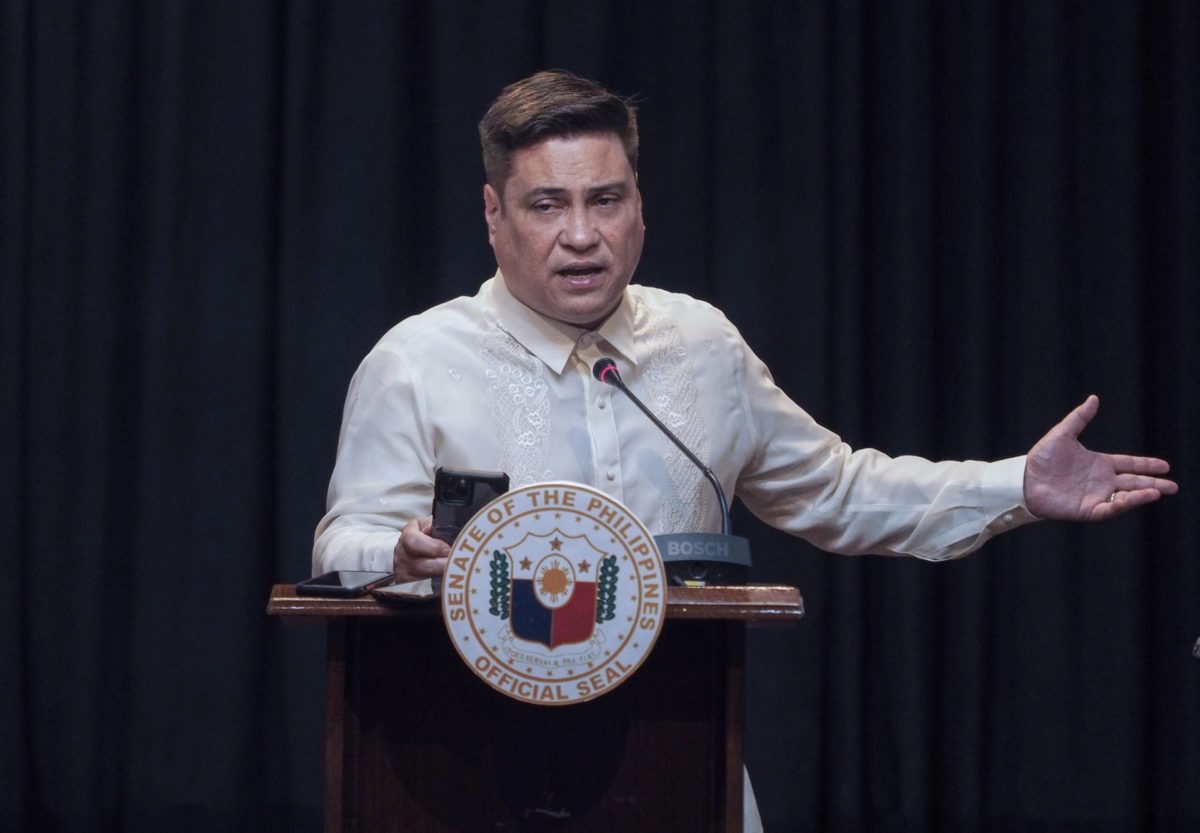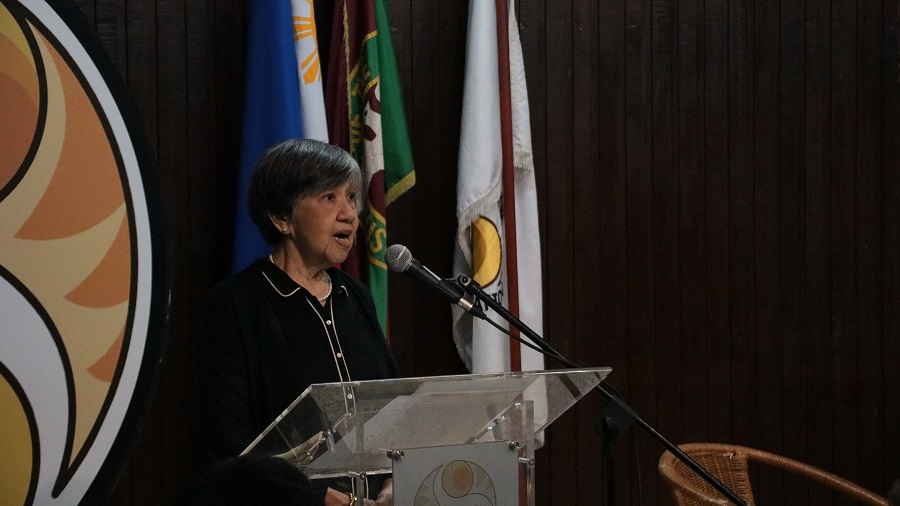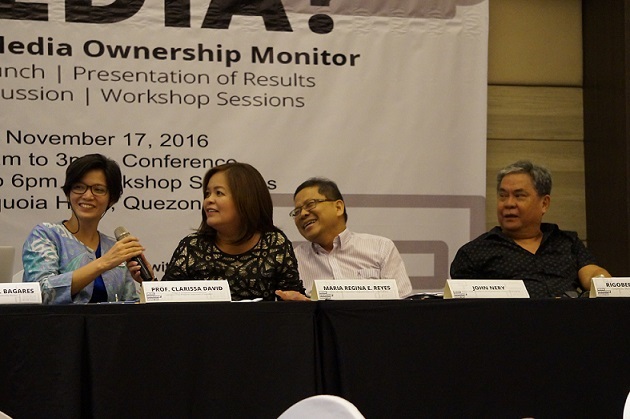
Prof. Clarissa David of the Philippine Competition Commission and University of the Philippines; Maria Regina Reyes, head of Integrated News and Current Affairs, ABS-CBN; John Nery, editor in chief, Inquirer.net and Rigoberto Tiglao, Manila Times columnist and author of the book,”Colossal Deception.”
By ELLEN T. TORDESILLAS
FIRST things first: I’d like to thank each and every one who took time to attend the whole day launch and conference of the Media Ownership Monitor Philippines (http://philippines.mom-rsf.org/ ) last Thursday.
My special thanks to Press Undersecretary Enrique Tandan who delivered the keynote address in behalf of Press Secretary Martin Andanar, who was in Lima, Peru with President Duterte for the APEC summit; Atty Romel Bagares, who did the legal assessment of media ownership in the Philippines; and the four panelists – Ging Reyes, head of Integrated News and Current Affairs, ABS-CBN Corporation; John Nery, editor in chief, Inquirer.net and opinion columnist, Philippine Daily Inquirer; Prof. Clarissa David of the Philippine Competition Commission and the Graduate Studies Department, College of Mass Communication, University of the Philippines; and Bobi Tiglao, Manila Times columnist and author of the book, Colossal Deception- How Foreigners Control our Telecoms Sector.
The participants enjoyed the lively exchanges among the panelists –especially between Tiglao and Nery- which happens only in a gathering of learned and strong- minded personalities.
MOM is a joint project of Reporters Sans Frontières (RSF) Germany and VERA Files (disclosure: I’m a trustee of VERA Files) which both believe that media ownership matters in the quality and credibility of the news that the public gets.
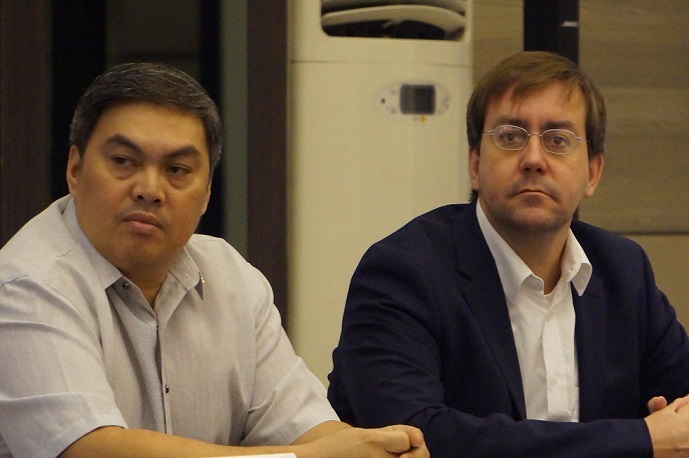
RSF Germany has existed for 21 years and is part of the international Paris-based RSF, whose aim is to defend human rights, in particular freedom of the press and the right to inform and be informed anywhere in the world.
This is perfectly in accord with the aspiration of the Filipino people as embodied in the Philippine Constitution: “The right of the people to information on matters of public concern shall be recognized. Access to official records, and to documents, and papers pertaining to official acts, transactions, or decisions, as well as to government research data used as basis for policy development, shall be afforded the citizen, subject to such limitations as may be provided by law.”(Art.III, sec. 7)
I’d like to share our experience in the course of our MOM research that somehow raises questions on the implementation of that constitutional provision.
In our past researches related to investigative stories that we were doing, the policy of the Securities and Exchange allowing Reverse Search (you key in the name of the company or person and you get all the business affiliation of the subject) helped a lot in finding out relevant links of the officials and persons we were writing about.
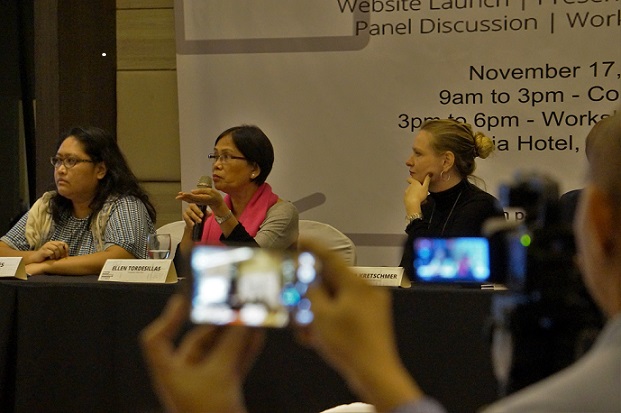
Launched in 2008, the Reverse Search Module (RSM) of SEC was designed to provide access to company information like incorporators, company affiliations and case relationships. It was a very helpful tool in promoting transparency and accountability from government officials.
We were then greatly disappointed when last July, SEC Chairperson Teresita J. Herbosa, in reply to our request to do reverse search on five media owners, said the “RSM was discontinued after the SEC re-assessed its responsibilities under the Data Privacy Act (DPA).”
“The data that will be accessed using RSM contains sensitive personal information and public access to these information are generally prohibited under the DPA except if the Data Subject gives his/her consent,” she said.
“Nonetheless,” Herbosa said, “it may be argued that the SEC’s data processing application and the information generated may be used for journalistic purposes.”
She said they have requested the Department of Justice’s opinion on the matter.
VERA Files followed the matter up with the DOJ.
The DOJ said they handed the job of resolving the issue to the newly-created National Privacy Commission, an independent body created to administer and implement the DPA.
Herbosa told VERA Files” “You may wish to get the written consent or waiver of the top media executives authorizing the SEC to process and disclose information relative to the companies/firms registered with the SEC to which they are related or connected to.”
Huh??
The SEC is under the Office of the President. An executive order on Freedom of Information issued by President Duterte last July 23, that will cover offices in the Executive Department (An FOI law that will cover all branches of the government is yet to be passed) will take effect on Nov. 25. It is, however, riddled with 166 exemptions.
We are awaiting the reversal of SEC’s current policy on reverse search.
